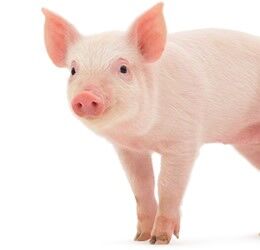George Washington Carver interns announced
The World Food Prize Foundation announced the selection of 17 students for its prestigious George Washington Carver Internship program.
Every school semester and summer, the World Food Prize Foundation selects a number of extraordinarily qualified students for its George Washington Carver Internship program. Since its founding in 2001, the GWC Internship has impacted hundreds of students and given them the opportunity to learn about not only the operation and impact of an international non-profit organization, but also about the importance of food security.
These highly qualified students will play an essential role in the daily operations of the World Food Prize Foundation. Students will work closely with experienced mentors throughout the summer, and they will have the opportunity to interact with government officials, World Food Prize Laureates, international media and other leaders in global food security.
The Summer 2020 GWC interns from High Plains Journal’s readership area include Kyle Ebel, Iowa State University; Sydney Garrett, Des Moines Area Community College; Molly Hart, Grand View University; Rebeka Klassen, University of Northwestern-St. Paul; Katie Lajoie, Drake University; Ryan Lefort, Drake University; Grace Long, Drake University; Stella Murphy, University of Iowa; Paul Richards, University of Iowa; Trish Richards, Drake University; Ashley Rolf, Iowa State University; Nicole Saltou, Iowa State University; and Jonah Schaeffer, University of Iowa.
Rabbit hemorrhagic disease
The Nebraska Department of Agriculture is warning rabbit owners to be aware of a serious and highly contagious viral disease of rabbits that has recently been identified in multiple states. Rabbit Hemorrhagic Disease Virus has been diagnosed as the cause of death in wild and domestic rabbits in New Mexico, Arizona, Texas and Colorado, as well as domestic rabbits in Nevada and Utah and wild rabbits in California. To date, the virus has not been found in Nebraska.
Symptoms of RHDV include fever, anorexia, wasting, diarrhea and respiratory illness. RHDV can also cause sudden death in rabbits. The virus is spread directly between rabbits and can survive for weeks in contaminated environments. Currently, there are no approved vaccines licensed in the United States for RHDV, although a foreign-produced vaccine is being made available in states where the virus has already been identified. RHDV does not infect humans, livestock or non-rabbit household pets.
Enhanced biosecurity helps prevent the introduction and spread of viruses and diseases including RHDV. In addition to thorough cleaning and sanitation practices, rabbit owners should consider restricting visitors to their rabbitries, and isolating new rabbit additions for 30 days.
RHDV is a notifiable Foreign Animal Disease, and practitioners who suspect RHDV should contact the Nebraska Department of Agriculture at 402-471-2351. Individuals who have concerns about unusual deaths of wild rabbit and hare populations are encouraged to contact Nebraska Game and Parks at 308-763-2940.
All rabbits entering Nebraska must be accompanied by a Certificate of Veterinary Inspection (CVI, or health certificate). If you are considering moving an animal into Nebraska from an affected state, please call 402-471-2351 to learn more. Additional information on Rabbit Hemorrhagic Disease Virus can be found on NDA’s website at nda.nebraska.gov/animal/diseases/rhd/index.html.

